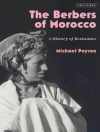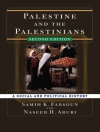Explores why minor slights to certain kinds of gentlemen led to duels in order for honour to be satisfied, and how such ideas about honour changed over time.
This book, the most comprehensive study of the English pistol duel yet undertaken, examines what it meant to be a man of honour in eighteenth and nineteenth century England. A thorough survey of the incidence and distribution of duelling, both socially and geographically, identifies those sub-groups of gentlemen most likely to duel. The author considers the mores and manners of such groups and asks why it was that within specific professions, minor slightscould only be requited by a demand for satisfaction. In doing so, the author rejects those traditional histories of duelling which have failed to engage with the internal dynamics and internal logic of the phenomenon itself.
Too often historians have explained the rise of opposition to duelling in terms of social and cultural change whilst at the same time treating the duel as though its ideological content had become irrevocably fixed in the early seventeenth century. Honour culture too had a social and an intellectual history and the author outlines those conflicts of ideas within the culture of honour itself that did much to hasten the demise of the English duel.
A Polite Exchange of Bullets will be welcomed as a fresh approach to an important social phenomenon by all those interested in duelling and in English social and cultural history.
STEPHEN BANKS is a lecturer in criminal law at Reading University Law School and co-director of The Forum of Legal and Historical Research.
Inhoudsopgave
Introduction
Setting the scene: The arrival of the duel and a brief history to 1750
Fashion and physicality
Politeness, interest and transgression: social interaction and the causes of duelling
Controversies and calculations: the incidence and distribution of duelling
Guts and governance: honour culture and colonial administration
Dangerous friends: conciliation, counsel and the conduct of English duelling
The contest in the courtroom: duelling and the criminal justice system
The years of decline: The European middle and the domestic duellist
The reformation of space, place and mind
Dishonourable duellists and the rationalisation of punishment and warfare
Conclusion












